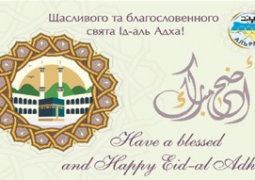
The following acts are permissible for the fasting person:
- Pouring water over one’s self and submersing one’s self in water: Abu Bakr ibn ‘Abdurrahman reported from a number of companions that they had seen Allah’s Messenger pour water over his head while he was fasting due to thirst or extreme heat. This is related by Ahmad, Malik, and Abu Dawud with a Sahih chain.
In the two Sahih of al-Bukhari and Muslim, it is related from ‘Aishah that the Prophet would rise in the morning on a fasting day and then would perform ghusl (a complete bath). If during the bath some water is swallowed unintentionally, the fast is still valid.
- Applying Kohl or Eyedrops or anything else to the eyes
These acts are all permissible, even if some taste from it finds its way to the throat, as the eyes are not a passageway to the stomach. Anas reported that he would apply kohl while he was fasting. This is the opinion of the Shaf’iyyah. Ibn al-Munzhir records the same opinion from ‘Ata, al-Hassan, an-Nakha’i, alAu~a’i, Abu Hanifah, Abu Thaur, and Dawud. It is related from the following companions: Ibn ‘Umar, Anas, and Ibn Abu ‘Aufa. According to at-Tirmizhi, nothing authentic has been related from the Prophet concerning this question.
- Kissing for one who has the ability to control himself
It is confirmed that ‘Aishah said: “The Prophet would kiss and embrace while he was fasting, for he had the most control of all of you over his desires.” ‘Umar said: “I was excited one time and I kissed [my wife] while I was fasting. I went to the Prophet and said: ‘Today I committed a horrendous act--I kissed while I was fasting.’ The Prophet asked: ‘What do you think of rinsing with water while fasting?’ I said: ‘There is nothing wrong with that.’ The Prophet said: ‘Then what is the question about?’”
Ibn al-Munzhir says: “ ‘Umar, Ibn ‘Abbas, Abu Hurairah, ‘Aishah, ‘Ata, ash-Sha’bi, al-Hassan, Ahmad, and Ishaq permit kissing. The Hanafiyyah and Shaf’iyyah say that it is disliked if it incites one’s desires.
If it does not do so, it is not disliked although it is better to avoid it.” There is no difference between an old man or a young man in this matter. The question is whether or not the kiss excites one’s desires. If it does, it is disliked. If it does not, it is not disliked although it is best to avoid it. It does not matter if the kiss was on the cheek or on the lips, and so on. Touching with the hand or embracing follow the same ruling as kissing.
- Taking any type of Injection
Injections do not break the fast whether they are for feeding the person or just medicine. It does not matter if the injection was intravenous or underneath the skin. It also does not matter if what was injected reaches the stomach, as it does not reach the stomach through the customary manner (that food does).
- Cupping to drain blood
The Prophet, (SAW) was cupped while he was fasting. However, if doing this weakens the fasting person, it is disliked. Thabit al-Bunani asked Anas: “Did you dislike cupping for a fasting person during the time of the Prophet?” He answered: “No [we did not], unless it made someone weak.” This is related by al-Bukhari and others. Vivisection follows the same ruling as cupping.
- Rinsing the Mouth and Nose
These acts are allowed in general, but it is disliked to exaggerate (that is, use a lot of water and put the water deep into the mouth or nose while fasting). Laqit Ibn Sabra reported that the Prophet said: “Exaggerate when rinsing your nose unless you are fasting.” This is related by an-Nasa’i, Abu Dawud, at-Tirmizhi, and Ibn Majah. At-Tirmizhi called it Hassan Sahih.
Scholars dislike using nose drops (that is, applying medicine through the nose) while one is fasting, for they are of the opinion that it breaks the fast. There is a hadith that supports their opinion.
Ibn Qudamah sums up the various opinions on the subject: “If while gargling or rinsing the nose for the sake of purifying one’s self [for example, for prayer] water reaches the throat unintentionally and not due to exaggeration, there is no problem. This is according to al-Auza’i, Ishaq, and one statement from ash-Shaf’i, which is related from Ibn ‘Abbas. Malik and Abu Hanifah hold that it breaks the fast because that water reaches the stomach. If he was aware that he was fasting, it breaks his fast, as if he would have drunk intentionally. The first opinion is stronger, since [the water] reached the throat without intention or exaggeration. It is similar to having a fly enter the mouth and proceed to the throat. That differentiates it from an intentional act.”
- Those things which one could not protect one’s self from, such as swallowing one’s saliva, the dust of the road, sifting flour and so on are all overlooked
Ibn ‘Abbas ruling is that: “There is no problem with tasting liquid food or something you wish to purchase.” Al-Hassan used to chew the walnuts for his grandson while he was fasting. Ibrahim also permitted that.
Chewing gum (unlike the one in vogue in the West, it has no sweetness or fragrance) is disliked. The gum must not break into pieces. Those who say that it is disliked include ash-Sha’bi, an-Nakha’i, the Hanafiyyah, the Shaf’iyyah, and the Hanbaliyyah. ‘Aishah and ‘Ata permit chewing, as nothing reaches the stomach and it is just like putting pebbles into one’s mouth provided it does not break into parts. If a part of it breaks off and enters the stomach, it will break the fast.
Ibn Taimiyyah says: “Smelling perfumes does not harm the fast.” Enlarging upon the subject, he says: “As for kohl, injections, drops dropped into the urethra [that is, enemas for medicinal purposes], and treatment for brain and stomach injuries, there is some dispute among the scholars. Some say that none of these break the fast, some say that all except kohl would break the fast, while others say all except the drops break the fast, or that the kohl or drops do not break the fast but that the rest do.” Ibn Taimiyyah continues: “The first opinion on this question is preferred. The most apparent conclusion is that none of them break the fast. The fast is part of the religion of Islam. Both the layman and specialist must be knowledgeable about it. If the preceding actions were forbidden by Allah and His Messenger to the fasting person because they would ruin the fast, then it would have been obligatory upon the Messenger to clarify that fact. If he had done so, his companions would have known about it and would have passed it on to the rest of the Muslims. Since no one has related that not from the Prophet, not with an authentic or a weak hadith, nor in Mursal or Musnad form then it must be the case that such acts do not void [the fast].” He also says: “If the ruling is one that would affect everyone or everyday matters, then the Prophet would have clarified it to a general audience. It is well-known that kohl was in common use as were oils, washing, incense, and perfume. If they broke the fast, the Prophet would have mentioned them, as he mentioned other things [that break the fast]. Since he did not do so, they belong to the class of perfumes, incense, and dyes. Incense goes through the nose and enters the head and lands on the body. Dyes or oils are absorbed by the skin and the body is refreshed by it. The case of perfumes is similar. Since these have not been [explicitly] prohibited to the fasting person, it points to the fact that using them is permissible for the fasting person and so is kohl. The Muslims during the time of the Prophet would injure themselves, either from jihad or otherwise, and would injure their stomachs or skulls. If that would have ended their fasts, it would have been made clear to them [by the Prophet].
Since that was not prohibited for the fasting person, it must not break the fast.” Ibn Taimiyyah continues: “No one eats kohl and no one causes it to enter his stomach--neither through his nose nor through his mouth. Anal enemas are also not taken as food. Indeed, it helps the body to release whatever is in the intestines and it does not reach the stomach. Any medicine that is used to treat stomach wounds or head injuries [that is taken orally] is not considered similar to food. Allah says in the Qur’an: ‘Fasting is prescribed for you as it was prescribed for those before you.’ The Prophet, (SAW), said: ‘Fasting is a shield,’ and, Verily, Satan rushes through the body like the flowing of the blood [in the body]. You should constrict his rushing by hunger and fasting.’ To increase his Allah-consciousness a fasting person must not eat or drink because food and drink cause the veins to fill up with blood in which Satan circulates [in one’s body]. They become easier for Satan through eating and drinking, not from enemas, kohl, or medicines applied through the penis or used to treat stomach and brain injuries.”
To be continued




